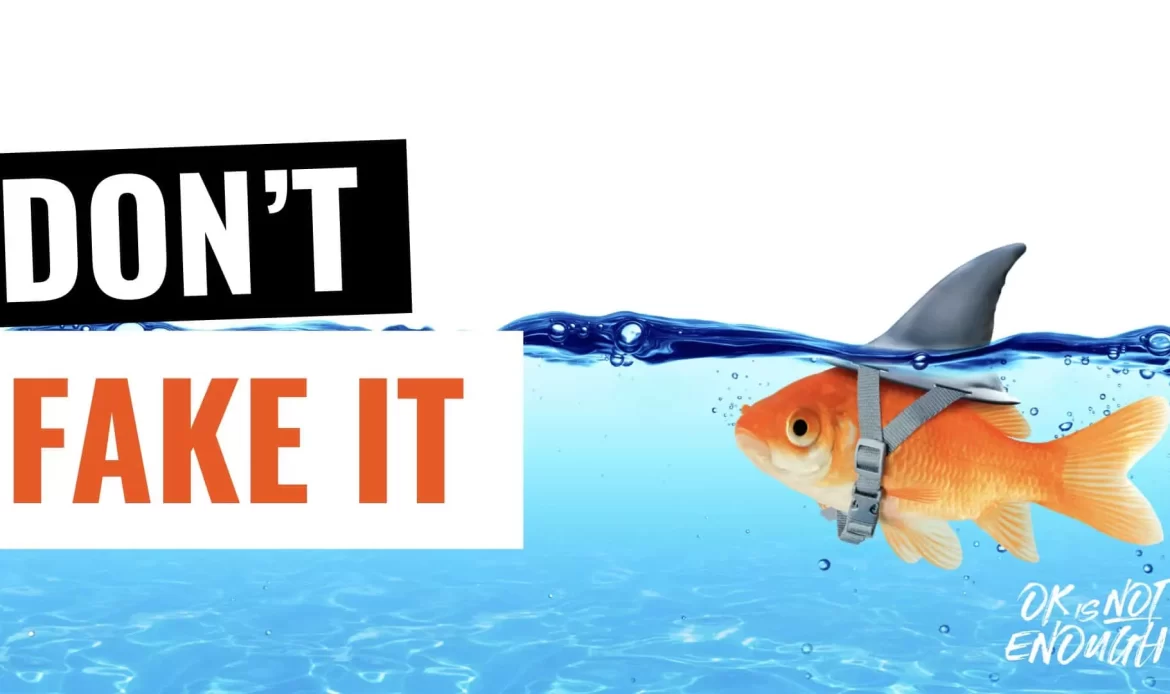
When it comes to career advice, everyone has an opinion. From family members to colleagues, people love sharing their “wisdom” about how to get ahead. Some sound like pure gold, while others may leave you scratching your head. But here’s the thing: just because it’s common advice doesn’t mean it’s good advice. In fact, some of the most popular career tips might be quietly sabotaging your growth.
Have you ever been told to “fake it till you make it”? Or that “hard work always pays off”? These phrases get tossed around so often that we rarely question whether they’re helpful. Spoiler alert: they’re not. In this article, we’ll break down seven pieces of popular but terrible career advice—and, more importantly, the smarter moves you should make to set yourself up for real success.
1. “Fake it till you make it.”

Why It’s a Trap: At first, “fake it till you make it” seems like a shortcut to success. If you act as though you have the skills or confidence, you’ll eventually grow into the role. But the truth is, faking your way through something can do more harm than good. For one, it can create a false sense of competence, leading you to take on tasks or responsibilities you’re not ready for.
This can result in mistakes, unnecessary stress, and even damage your credibility when the truth comes out. Worse, it can foster imposter syndrome, leaving you insecure despite your progress.
The Smarter Move: Instead of pretending, focus on learning until you make it. Be honest about what you don’t know and seek opportunities to build your skills. Embrace a growth mindset by taking on challenging tasks that push you to develop, but don’t be afraid to ask for help or guidance.
Being genuine about your abilities while demonstrating a commitment to learning will earn you more respect—and results—than faking expertise ever will.
Read: 13 Reasons Why You’re Still Broke (And How to Fix It)
2. “Hard work always pays off”

Why It’s a Trap: This advice has probably been drilled into you from a young age, but here’s the uncomfortable truth: hard work alone rarely guarantees success. Yes, effort is crucial, but in many cases, working tirelessly can lead to burnout, exploitation, and a lack of recognition. Some people toil away for years only to see others—who are less dedicated but more strategic—leapfrog ahead of them.
Overworking without visibility or recognition can leave you in the same position, wondering why your efforts are going well.
The Smarter Move: The key is to work both hard and smart. Understand your organization’s values and tailor your efforts to align with those goals. Prioritize the tasks with the greatest impact, and don’t be afraid to showcase your achievements. It’s not enough to be a hard worker behind the scenes—you need to be visible.
Build relationships with decision-makers, make your accomplishments known, and always advocate for yourself. Success is as much about strategy and visibility as it is about effort.
3. “Find a secure job and stick to it.”

Why It’s a Trap: In past generations, staying with one company for decades was a mark of loyalty and stability. But in today’s fast-evolving job market, clinging to a so-called “secure” job could hinder your growth.
Industries are changing rapidly, and sticking with a single job for too long might limit your skill development, professional network, and career opportunities. Job security is largely an illusion in a world where companies restructure, downsize, or change direction frequently.
The Smarter Move: Instead of prioritizing job security, focus on adaptability and continuous learning. Keep building a versatile skill set that allows you to stay relevant as industries evolve. Always look for opportunities with growth—even if it means changing jobs or industries.
It’s not about job-hopping but recognizing when your current position no longer serves your career ambitions. By being proactive, you’ll stay ahead of the curve and remain valuable in any job market.
4. “Become a manager if you want to grow your career”

Why It’s a Trap: There’s a common belief that climbing the management ladder is the only way to advance in your career. But managing people isn’t for everyone. Not only does it require a specific set of skills, but some people simply thrive more as individual contributors. Pushing yourself into a management role—just for the sake of career advancement—can lead to frustration, disengagement, and poor performance if leadership isn’t your natural calling.
The Smarter Move: Before pursuing a management role, ask yourself if this path aligns with your strengths and goals. If you excel in a technical or creative capacity, you might be more valuable (and fulfilled) as a specialist or subject matter expert.
Many organizations now offer career advancement paths for individual contributors that don’t require managing others. Explore those options to grow your influence, impact, and income without stepping into a role that may not suit you.
5. “Follow the money, leave passion for hobbies.”

Why It’s a Trap: It sounds practical to chase high-paying jobs and relegate your passions to weekends or side projects. However, pursuing money alone often leads to dissatisfaction. No matter how large the paycheck, a job that doesn’t inspire you can eventually wear you down. Studies have shown that when people don’t feel connected to their work, their motivation and job performance suffer, potentially limiting long-term career growth and leading to burnout.
The Smarter Move: Find a balance between financial stability and personal fulfillment. Look for career paths that offer both good pay and meaningful work. Passionate professionals tend to perform better, and this engagement often translates into opportunities for advancement.
Don’t dismiss your passion as merely a hobby—try to align your strengths and interests with your career, even if it means sacrificing some immediate financial gain. Over the long run, passion-driven work is often more sustainable and rewarding.
Read: Top 5 Ways to Answer the Interview Question: “Why Are You Leaving Your Current Job?”
6. “Keep your head down and do your job.”

Why It’s a Trap: This advice promotes the idea that staying out of office politics and simply doing your work will eventually get you noticed. Unfortunately, in most professional environments, that’s not the case. If you stay under the radar, you will likely be overlooked for promotions, leadership roles, and raises.
Doing good work in isolation won’t get you ahead if no one knows what you’re doing or how valuable your contributions are.
The Smarter Move: Visibility matters. Network with colleagues, engage with leadership and make your achievements known. Build relationships with people in positions of influence, and don’t shy away from highlighting your accomplishments. A great way to do this is to share your progress regularly, both in meetings and through informal conversations.
Remember, it’s not just about working hard—it’s about ensuring that the right people know the value you’re adding to the company.
7. “Never say no to your boss”

Why It’s a Trap: While it might seem like a good way to stay in your boss’s good graces, never saying no can lead to a host of problems, including burnout, overwork, and poor job performance. Always saying yes may set unrealistic expectations, and soon, you’ll find yourself overwhelmed and unable to meet deadlines, which can hurt your reputation more than an occasional “no” would.
The Smarter Move: Learn to say no respectfully and strategically. If your plate is full, explain your current priorities and ask for guidance on what should take precedence. Offer solutions, such as extending deadlines or delegating tasks to others. Setting boundaries shows that you understand your capacity and are committed to delivering high-quality work rather than overcommitting and underperforming.
There’s no shortage of career advice out there, but not all of it is helpful—or even accurate. By recognizing the traps hidden in common advice and making smarter, more strategic decisions, you can avoid career pitfalls and set yourself up for success. Always stay adaptable, focus on personal growth, and never stop learning. Your career is yours to shape, so don’t let bad advice steer you off course!
Stay tuned with RefinedNG for more professional tips.
